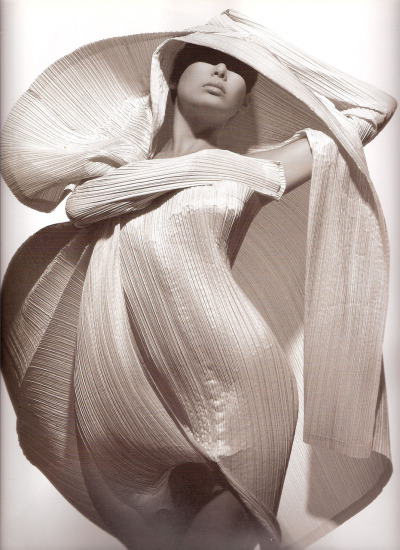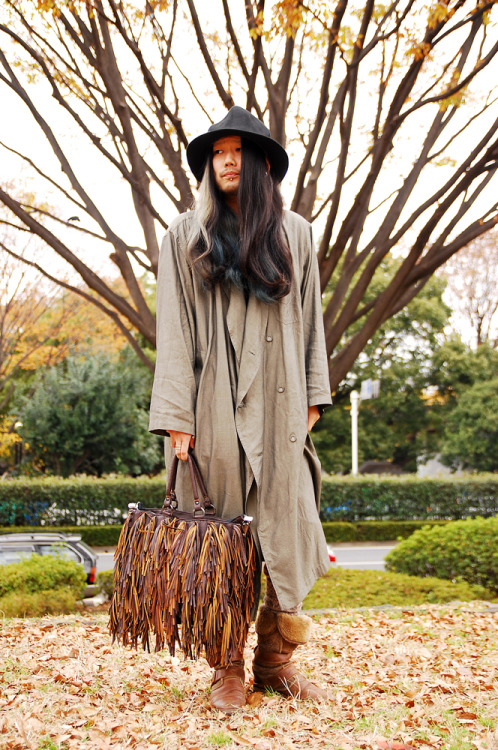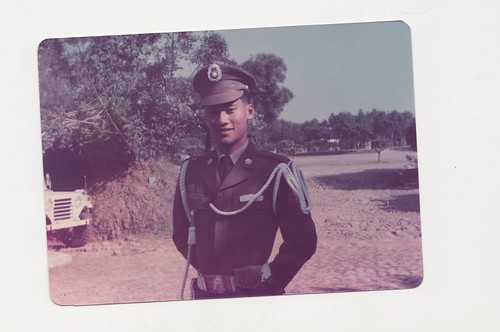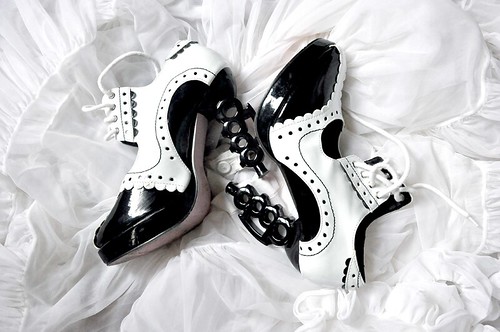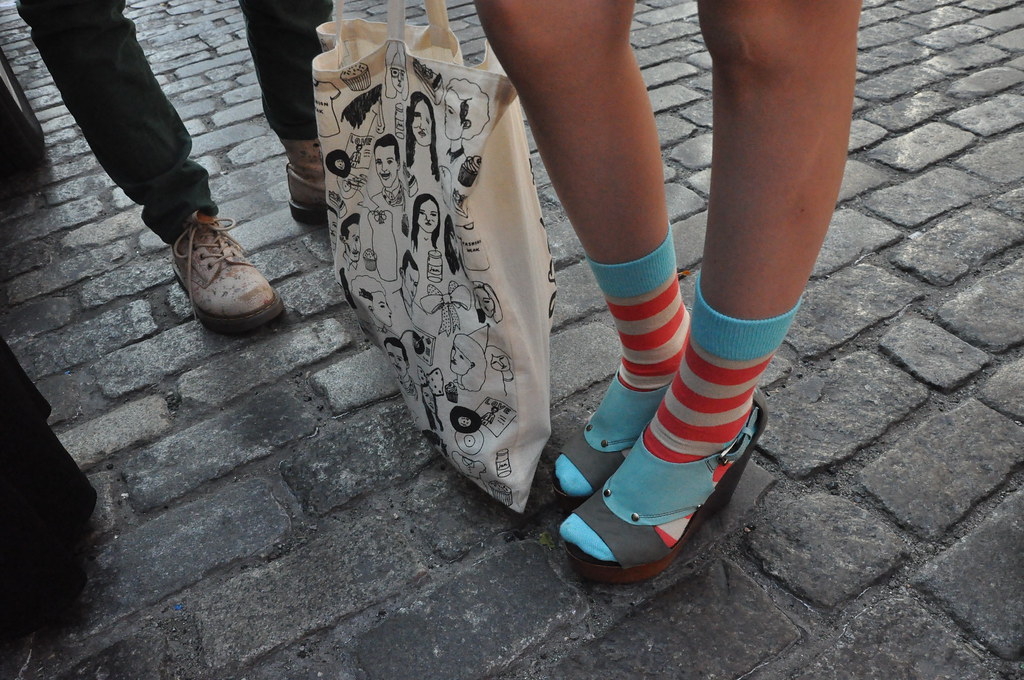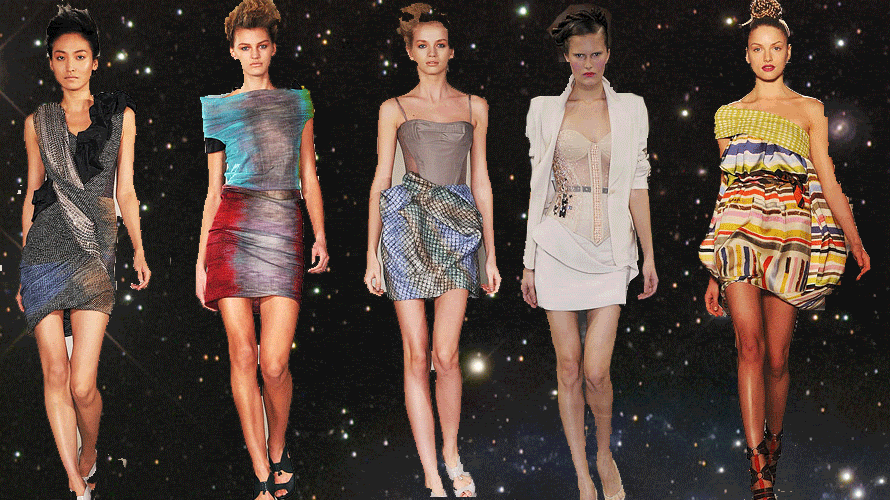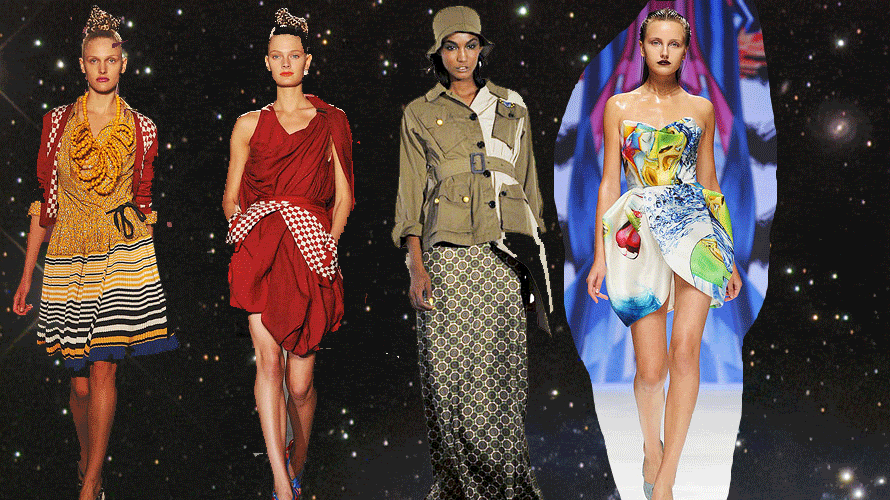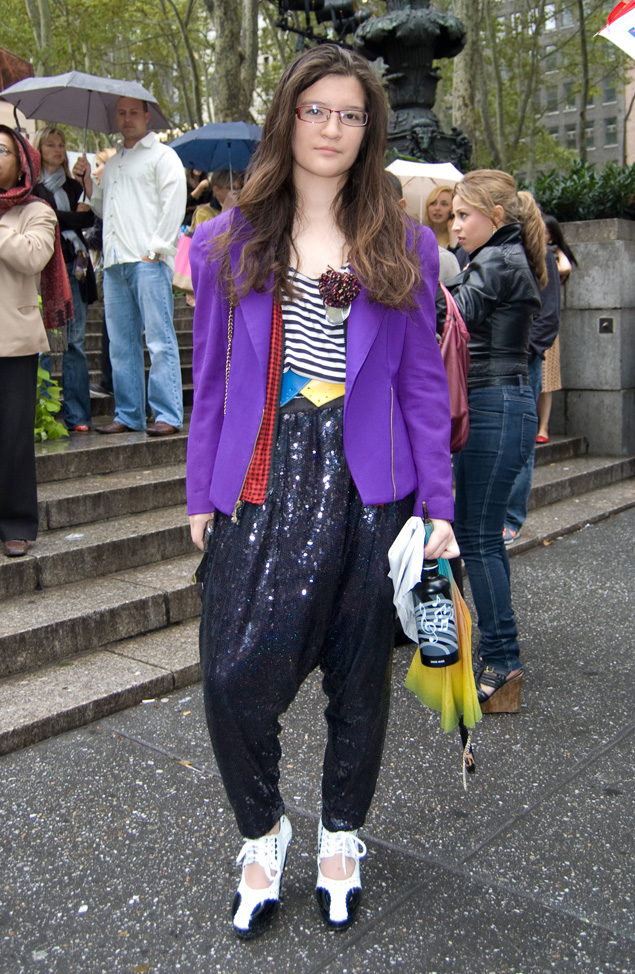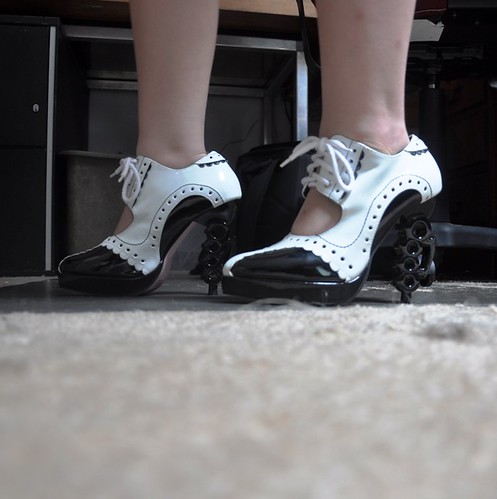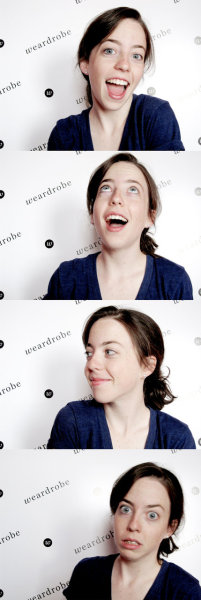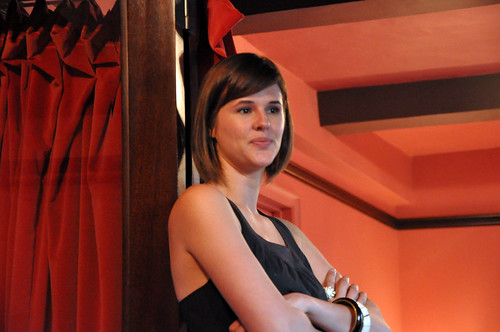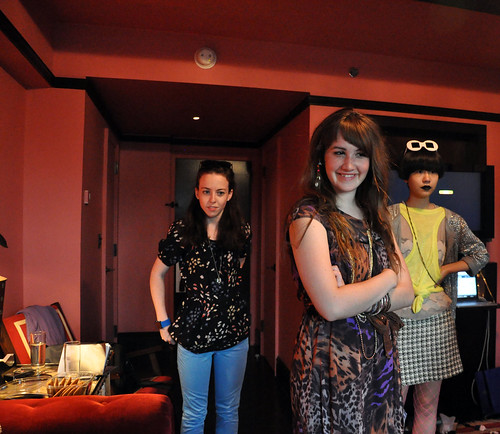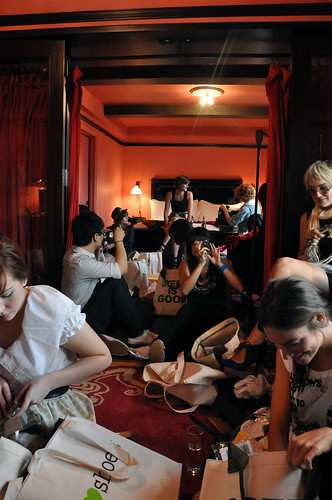I was reading the comments in the other post and I'm glad we all share a mutual
- Harajuku style was a bit odd, because they all dress unique, but they all dress unique the same way. As in, they all dress on the same level of weird.
I don't know. Is it bad I don't care? That I really don't mind that? I have a feeling I would actually really enjoy being surrounded by the people that inspired me and got me into fashion in the first place, but would it wear off after awhile?
It's a bit odd. On one hand, everyone here is really awesome about my style, and though apparently it's too weird for them to do themselves, they support me wholeheartedly. A few days ago the Board of Ed here came in to critique our outfits to see if they were "business interview worthy" and of course I was wearing an absurd(ly me) outfit, and when they started to critique it my entire graduating class gave me a round of applause. 200~ people just clapped for me! Even people I didn't know.
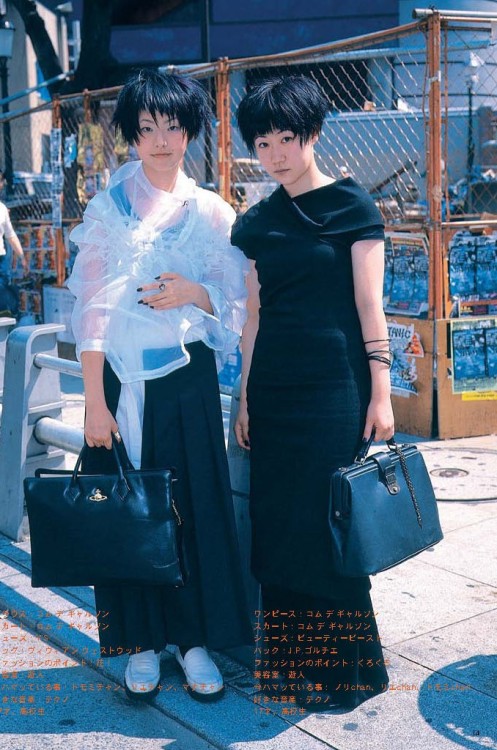
So going from somewhere where I'm different but supported to (hypothetically) going to the place whose style I emulate but probably wouldn't be considered different in... would I like it? When I think about it.... I think I still would.
The thing about fashion for me is that yes: it is a double edged sword. It's all about ~originality, but those who are truly different are always. consistently. ostracized. When Rei and Yohji first showed in Paris, they were freakshows at first -- of course they eventually came to be the powerhouse icons they are today, and basically introduced the entire fashion crowd to androgyny and BLACK -- but they were first considered weird as hell and then considered awesome. Sonia Rykiel and all the designers of the time (along with the majority of critics) complained that the "Japanese designers" weren't considering the body, that the clothes they were making were asexual and weren't molding to the body.
They were right and wrong. The way designers like Chanel, Rykiel, Lanvin, etc design is a completely different way that Rei Kawakubo or Yamamoto or Margiela or Miyake designs. I have a scrapbook of all the Japanese Style articles I've read, and this phrase stood out to me:
Kawakubo's clothes were deliberately designed to look unfinished and worn, defying common sense and challenging notions of perfection. At first she was regarded with revulsion, but this eventually gave way to amazement and admiration (Baudot 1999). Kawakubo (in Ayre 1989:11) says that 'Perfect symmetry is ugly.... I always want to destroy symmetry'... She wants to question the notion of perfection as something positive and beautiful.
And see, that is why I love street style more than runway (of course, besides the Comme collective, and maybe fifteen other designers around the world). Too many designers in my opinion don't try to break any conventions or contribute something truly thoughtful or new to the pool of fashion. They try to reach out to people, but what they want to say isn't something with depth. It's just something flattering to wear, something that makes you feel pretty and confident.
Art!Fashion doesn't aspire to that. It doesn't need to. It speaks for itself; it is its own justification. While other designers have a specific image--a brand concept they adhere to constantly and consistently each collection-- Comme doesn’t. The entire House: TAO, Comme, et all, they all reinvent, rethink, explore new ideas, and no one collection is on the same strand of thought as the previous one. None of it is safe, none of it is predictable. Hell, half the time, very few pieces aren’t actually wearable. And it’s called “Ready to Wear”!
Fashion right now feels really homogenized, predictable: safe. I'm beating a dead horse here but honestly, fashion as a whole, as a general being, isn't very interesting at the moment. There are too many wannabe Chanels, too few protégés of the avant garde (that survive the first year, anyway).
So, I’m brought to the question: why do I even claim to love fashion when I dislike, I don’t know 80% of the designers that are famous? Because, when the runway cannot survive, street style is always there to provide new thoughts to chew on, and if you’re lucky/obsessive enough to go through 30-90 street style blogs a week or month, you can see culture in its rawest form. You see it on someone who doesn’t even consider themselves fashionable, you see it on old ladies and drunkards and rebellious teenage schoolgirls and businesswomen. I don’t know if I’m clear enough, but I like street style over actual “runway” because it’s more accessible, more creative, more varied. You don’t have to own a $5000 dress to look amazing, and a lot of Tokyo Street Style snapshots don’t have any designer item in them at all.

